1/ NMC v Somerville: Worker status exists when undertaking to do work personally for someone who isn't a client/customer. There's no additional irreducible minimum of obligation required. A mere right to withdraw is immaterial.
bailii.org/ew/cases/EWCA/…
#ukemplaw
bailii.org/ew/cases/EWCA/…
#ukemplaw
2/ @robinsomerville was appointed as a panel member & chair of an NMC Fitness to Practise Committee. On a WTR holiday pay claim, the ET found S was a limb (b) worker given the existence of an overarching contract with the NMC & individual contracts when hearings were assigned.
3/ The ET found S agreed to provide services personally. It wasn't put off of finding S a worker by the fact that he was contractually able to refuse to accept any hearing date or to cancel his attendance at a hearing by notifying the NMC he was no longer available.
4/ The appeal concerned the part played by the irreducible minimum of obligation in determining whether worker status is made out. NMC's position was that S wasn't obliged to do any work or perform any services & hence couldn't be a worker.
5/ S agreed the overarching contract carried no obligations to work per se, but asserted that on accepting a hearing both the overarching & individual assignment contracts provided for obligations related to the hearing. 



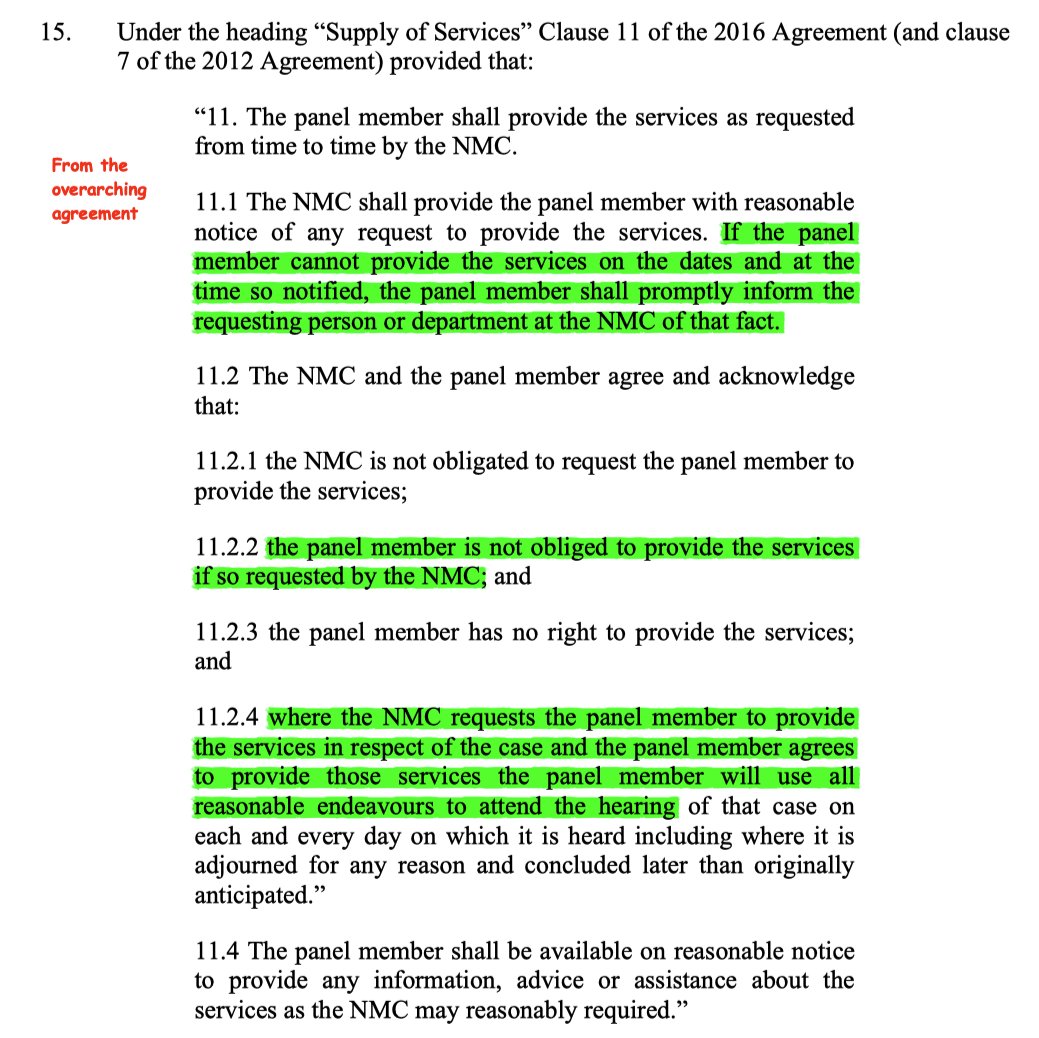


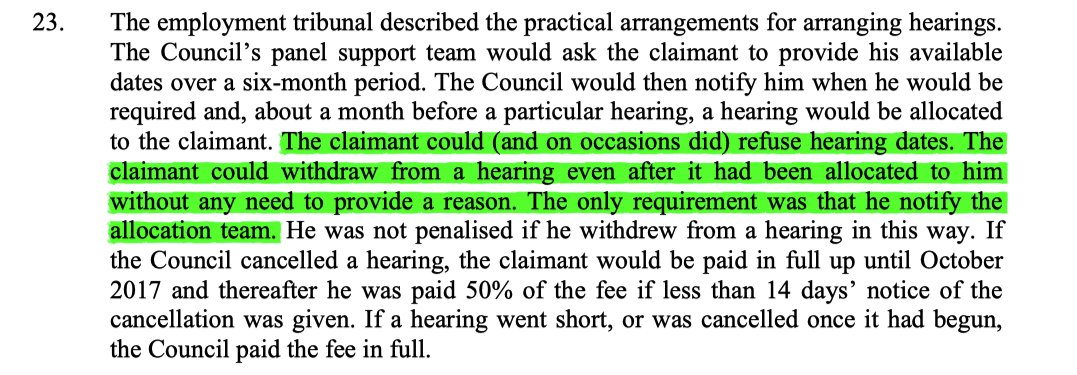
6/ The ET rejected S's submission that he was an employee under the individual contracts. It found insufficient mutuality of obligation given S's ability to withdraw without sanction after an individual agreement to sit was concluded but before the hearing. S didn't appeal this. 
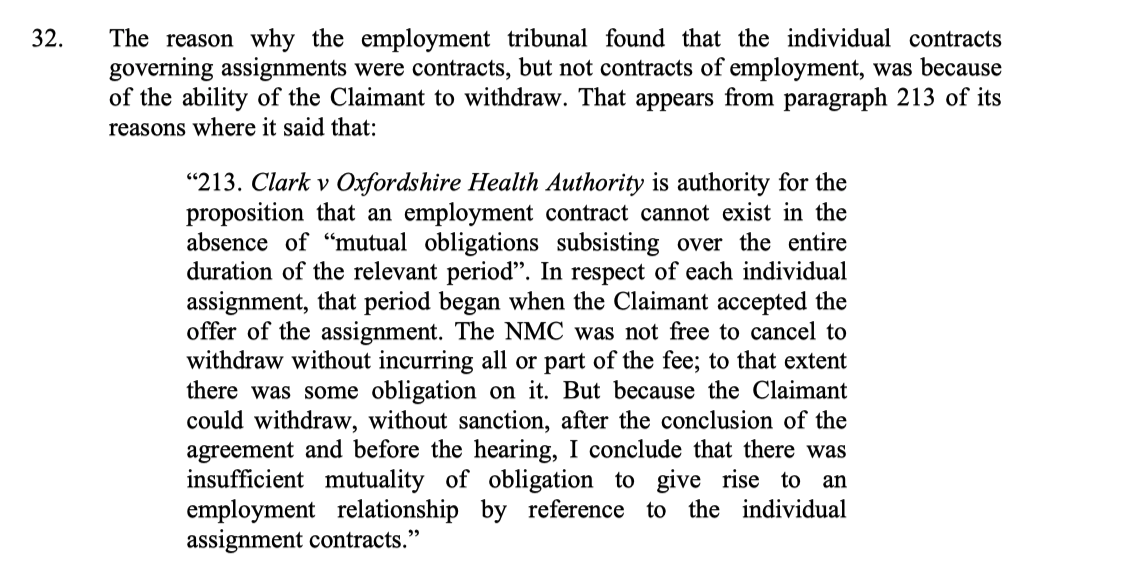
7/ The CA noted, obiter, that (albeit not appealed) this finding was inconsistent with the subsequent CA decision in the referees case, where the CA found the ability to withdraw immaterial - it's the fact of withdrawal that makes a difference. Mutuality exists until then. 
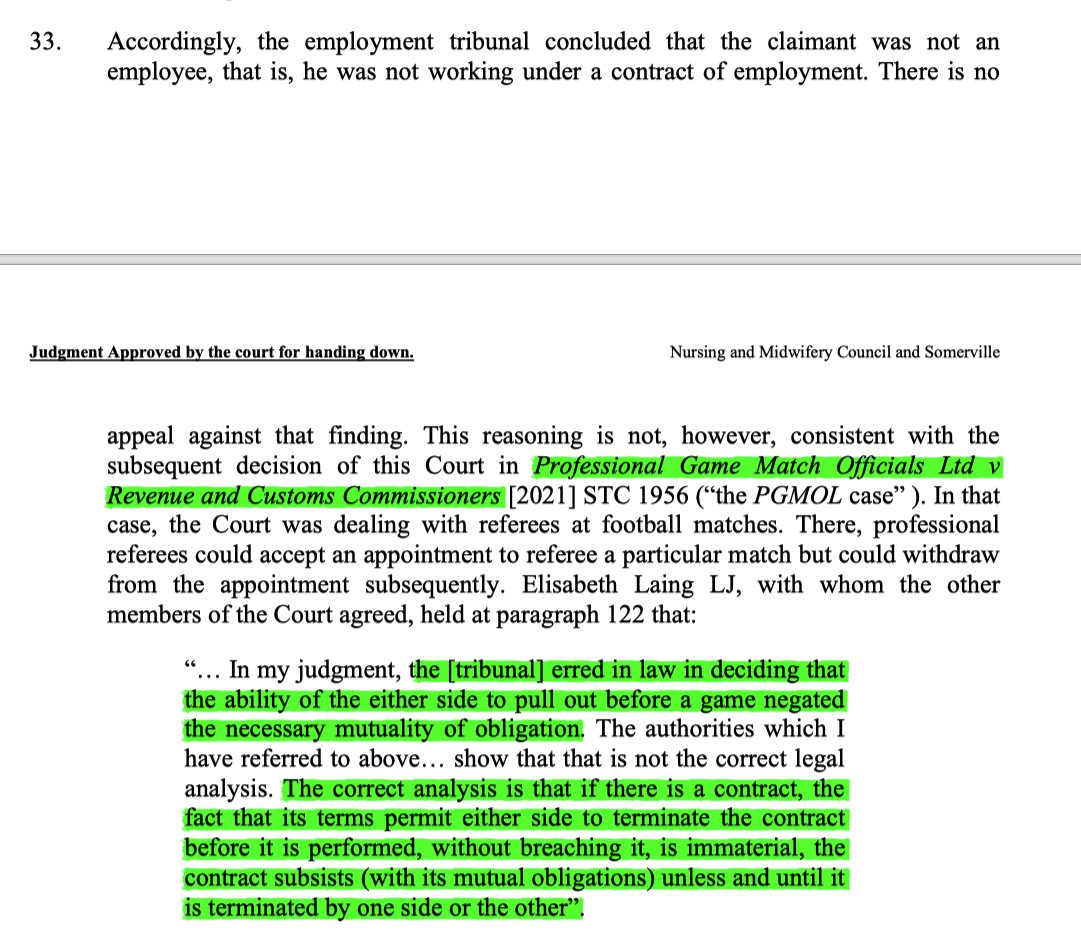
8/ The ET found S a worker. In doing so the ET explained with clarity why the levels of integration & subordination were such that NMC wasn't S's client or customer & hence S wasn't excluded from worker status on such a basis. 
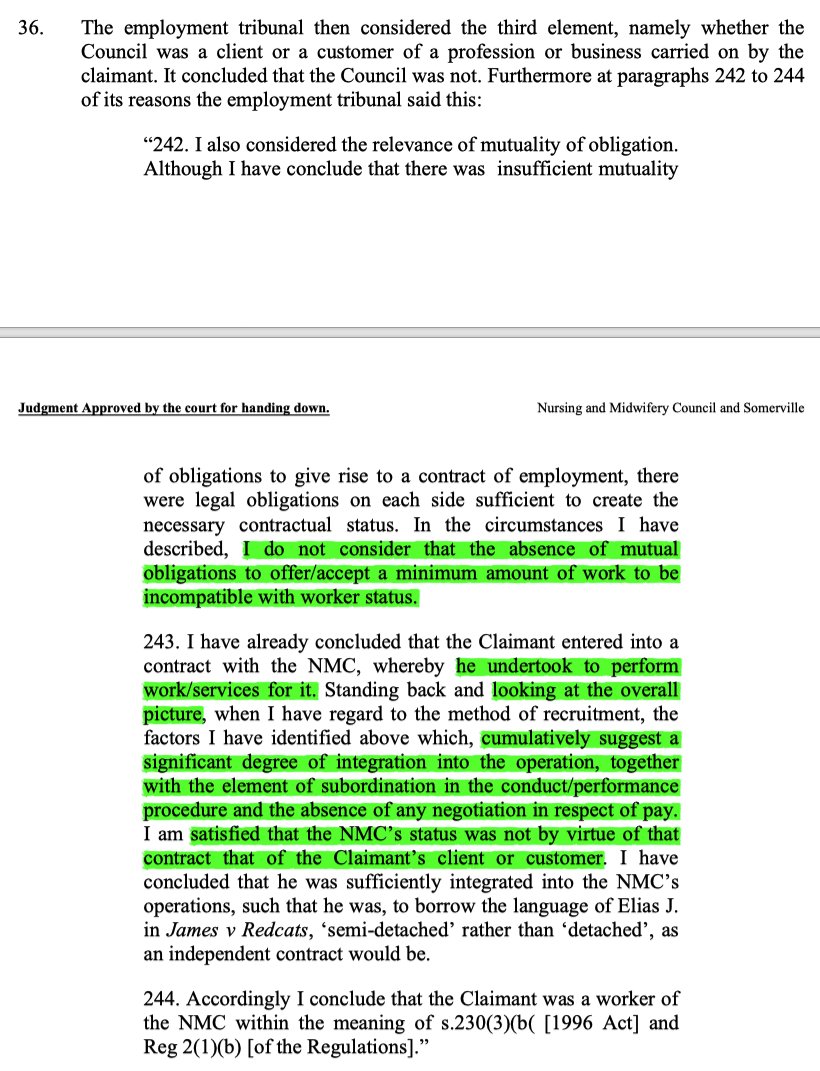
9/ The NMC lost before the EAT & appealed on the basis the ET erred in finding an irreducible minimum of obligation not a prerequisite for worker status & wrongly suggested a contract's existence relevant to determining whether there was such an irreducible minimum. 
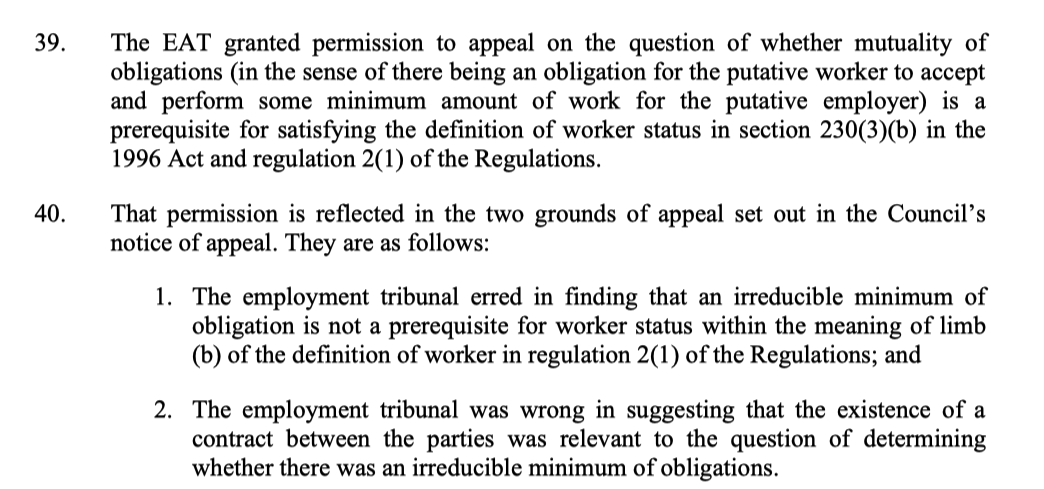
10/ NMC's position was each contract had to include an irreducible minimum before it could fall within the scope of worker status. Absent an obligation to perform a minimum amount of work, NMC said a contract couldn't fall under the definition. 

11/ NMC also suggested that you couldn't read the individual contracts without reading them together with the overarching contracts & that as the latter included no obligation to offer or accept work, the former couldn't fall under limb (b). 
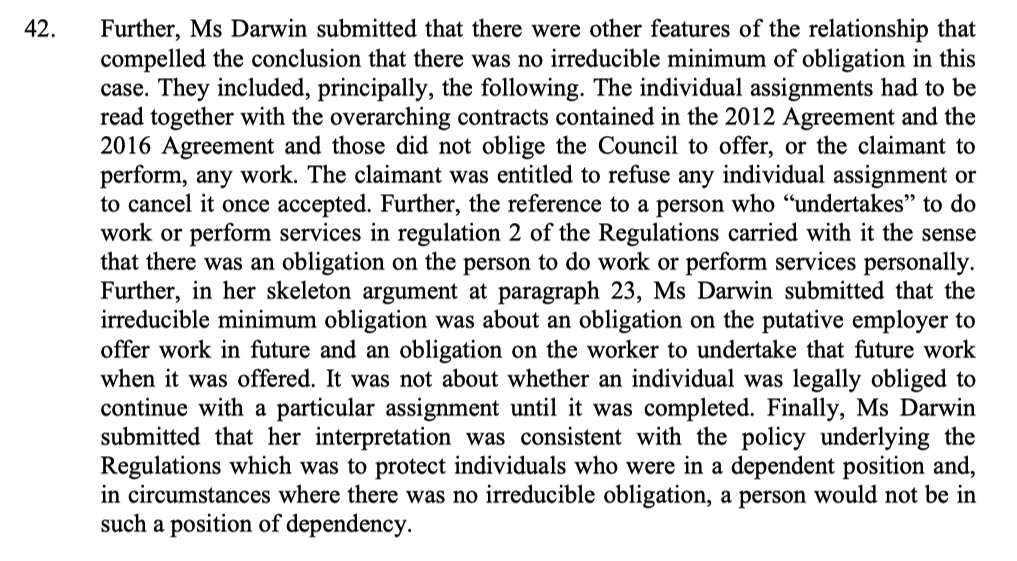
12/ In upholding the ET's decision, the CA noted the consistency between S's case & Uber as regards reliance on individual contracts to make out worker status when there wasn't the work-wage bargain under an overarching contract governing the relationship. 
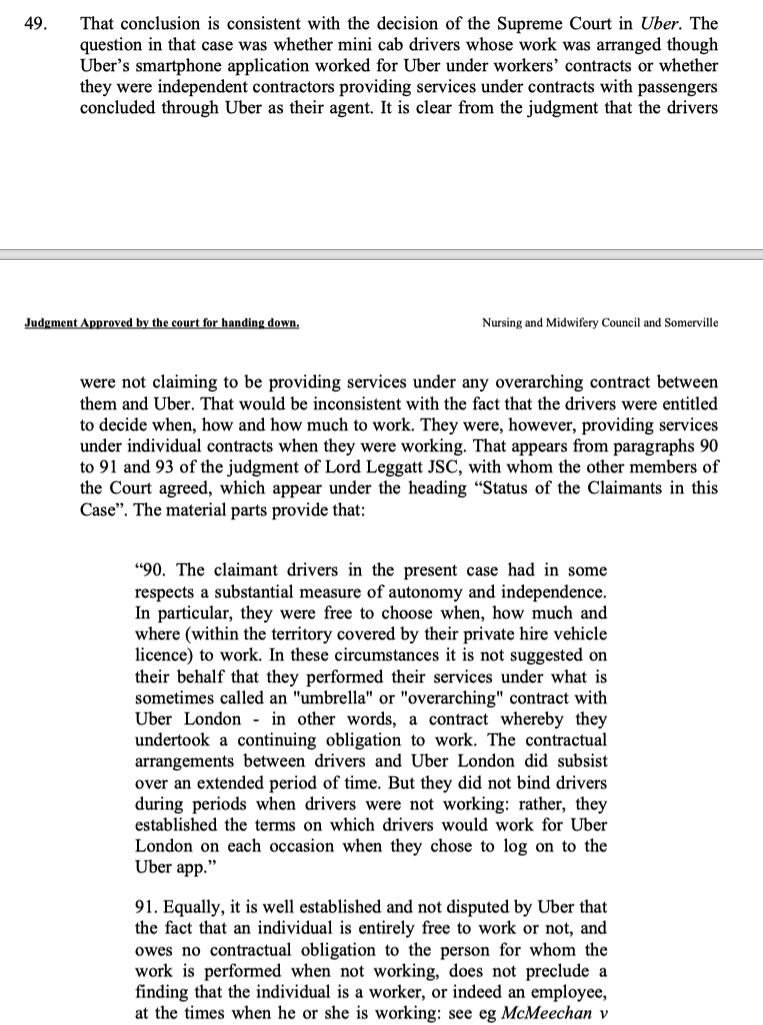
13/ You'll recall in Uber the SC found the drivers working under a contract from when they turned on the app, because at that point they were required to be generally willing & available to accept a job. The fact a driver could turn a job down wasn't fatal to worker status. 
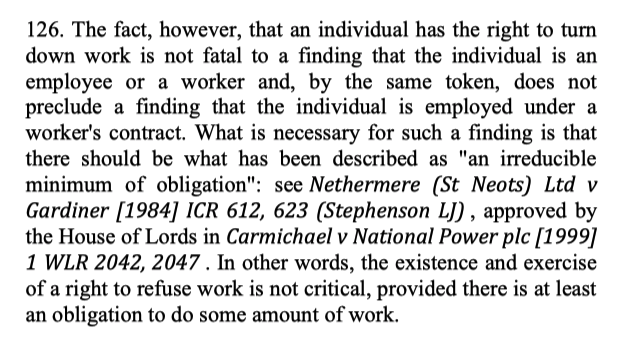
14/ The CA in Somerville noted that NMC's reliance on Uber relied on the parts of the judgment concerned with the 'time' the contract arose & not whether one arose at all. There was no need for a precedent obligation to provide/accept work before worker status could be found. 
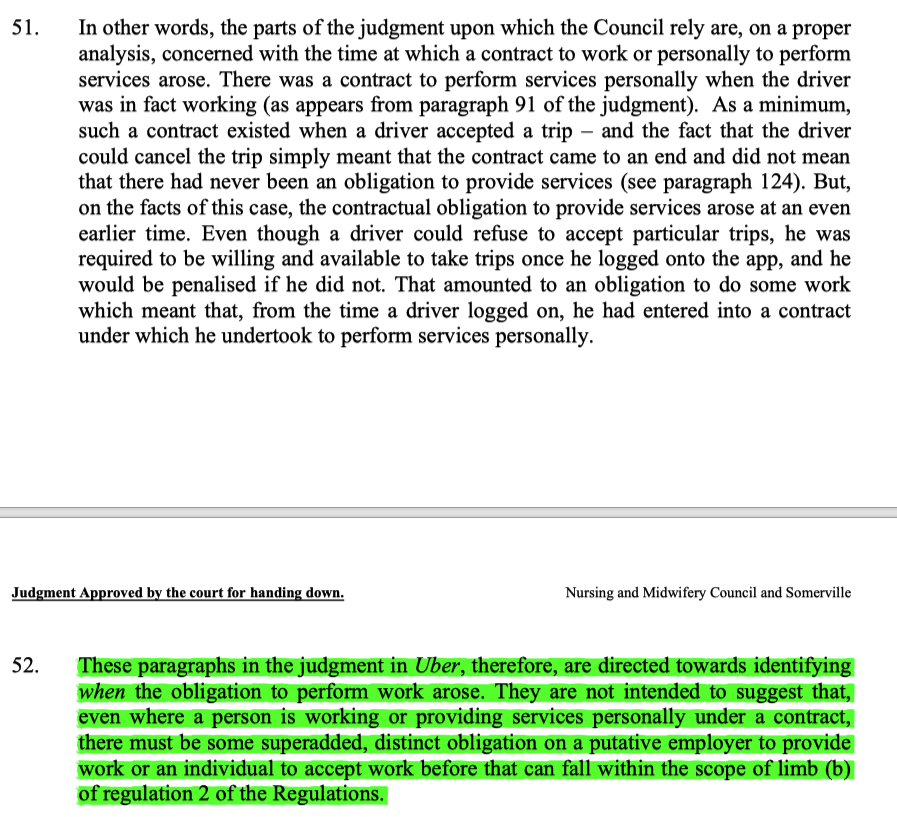
15/ The CA rejected NMC's argument that the lack of obligations to offer/accept work under the overarching contract precluding a finding S was a worker when in fact working. The referee decision made that clear re employment & the same applied to workers. 
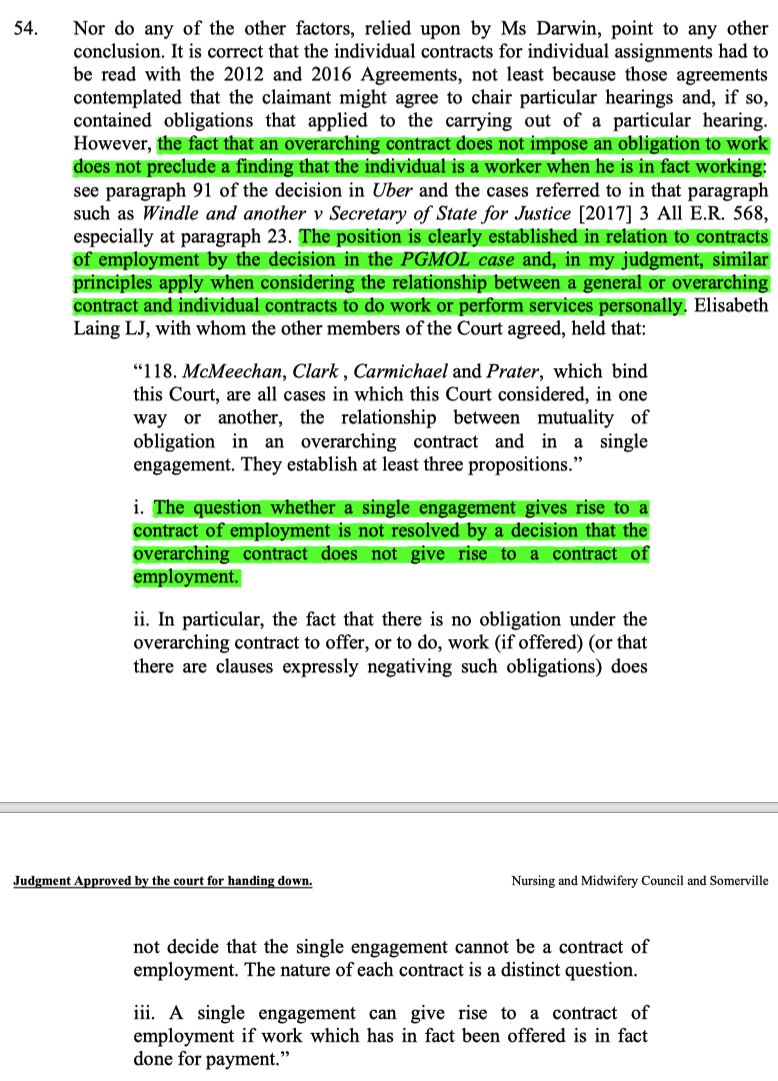
16/ The right to withdraw was immaterial as well. As per the referee case, S entered into contracts to work. Those contracts existed unless/until terminated. A right to terminate changed nothing about that analysis. 
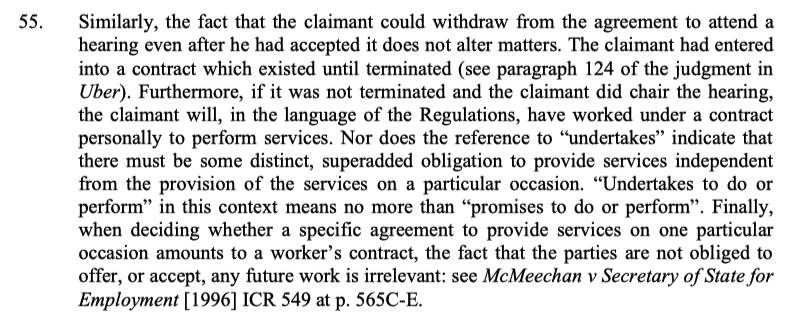
17/ Finally, the CA rejected NMC's suggestion the ET had wrongly found the existence of a contract relevant in itself to whether there was an irreducible minimum of obligations. That's not what the ET found - it had looked at the contract to determine the status question. 
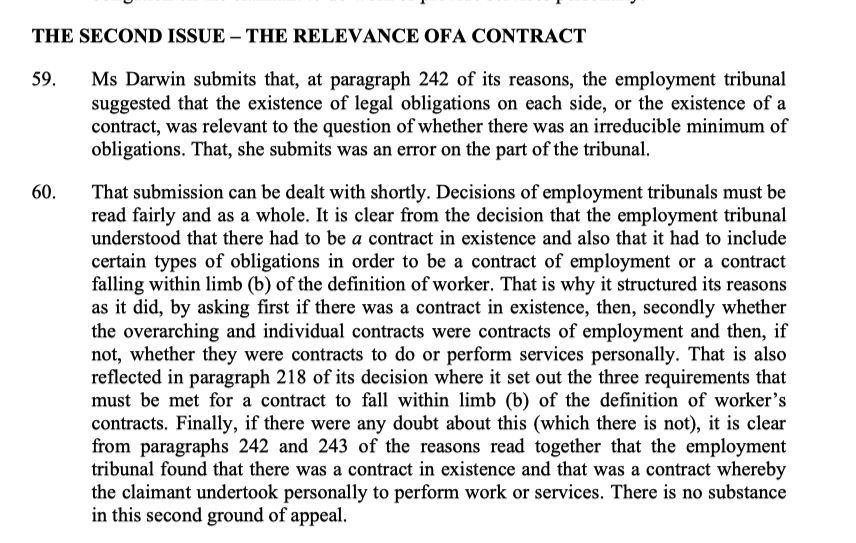
• • •
Missing some Tweet in this thread? You can try to
force a refresh








